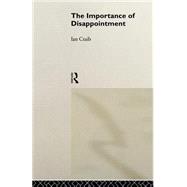- ISBN: 9780415093835 | 041509383X
- Cover: Nonspecific Binding
- Copyright: 10/18/1994
Ian Craib brings together the insights of both psychotherapy and sociology to argue that society seems to present new possibilities of living that are in fact illusions. Through the examination of modern theories of death and mourning, contemporary ideas of masculinity, and notions of the self espoused in modern therapies, Craig discusses how we have come to believe that we have rights to aspects of life such as happiness and a fulfilling relationship. This book discusses how psychoanalysis also becomes caught up in these illusions, offering ideals which are unrealizable, yet paradoxically reinforcing the conditions which lead people to seek help in the first place. Against this, Craib points to the "negative" strands of psychoanalysis: Freud's insistence on "normal human misery;" Klein's insistence on envy and the death instinct; Lacan's insistence on the fragmented nature of the self and the emphasis in British psychoanalysis on helplessness, 'dependence and paradox. The book shows how, by drawingon such ideas, psychoanalytic therapy can become more than an ideology, offering genuine help to its patients and providing a real source of radical social criticism.






